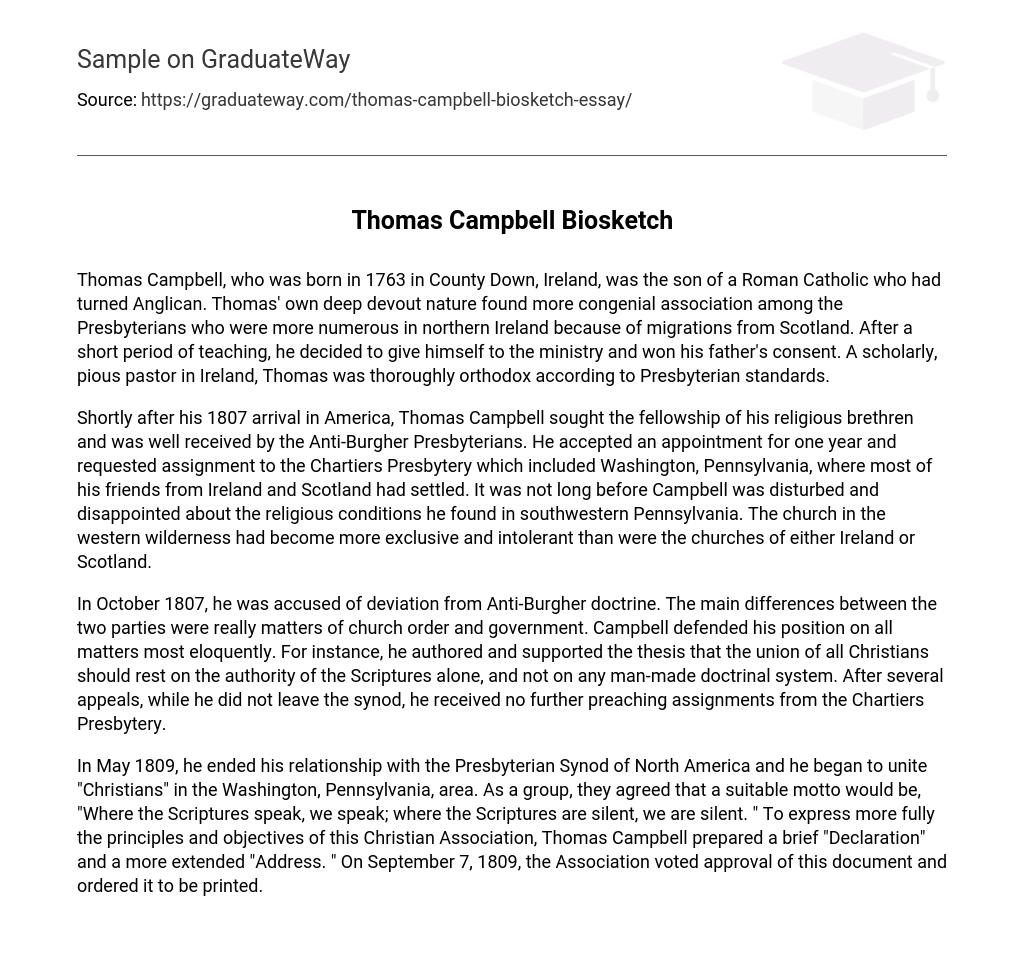Thomas Campbell, who was born in 1763 in County Down, Ireland, was the son of a Roman Catholic who had turned Anglican. Thomas’ own deep devout nature found more congenial association among the Presbyterians who were more numerous in northern Ireland because of migrations from Scotland. After a short period of teaching, he decided to give himself to the ministry and won his father’s consent. A scholarly, pious pastor in Ireland, Thomas was thoroughly orthodox according to Presbyterian standards.
Shortly after his 1807 arrival in America, Thomas Campbell sought the fellowship of his religious brethren and was well received by the Anti-Burgher Presbyterians. He accepted an appointment for one year and requested assignment to the Chartiers Presbytery which included Washington, Pennsylvania, where most of his friends from Ireland and Scotland had settled. It was not long before Campbell was disturbed and disappointed about the religious conditions he found in southwestern Pennsylvania. The church in the western wilderness had become more exclusive and intolerant than were the churches of either Ireland or Scotland.
In October 1807, he was accused of deviation from Anti-Burgher doctrine. The main differences between the two parties were really matters of church order and government. Campbell defended his position on all matters most eloquently. For instance, he authored and supported the thesis that the union of all Christians should rest on the authority of the Scriptures alone, and not on any man-made doctrinal system. After several appeals, while he did not leave the synod, he received no further preaching assignments from the Chartiers Presbytery.
In May 1809, he ended his relationship with the Presbyterian Synod of North America and he began to unite “Christians” in the Washington, Pennsylvania, area. As a group, they agreed that a suitable motto would be, “Where the Scriptures speak, we speak; where the Scriptures are silent, we are silent. ” To express more fully the principles and objectives of this Christian Association, Thomas Campbell prepared a brief “Declaration” and a more extended “Address. ” On September 7, 1809, the Association voted approval of this document and ordered it to be printed.





